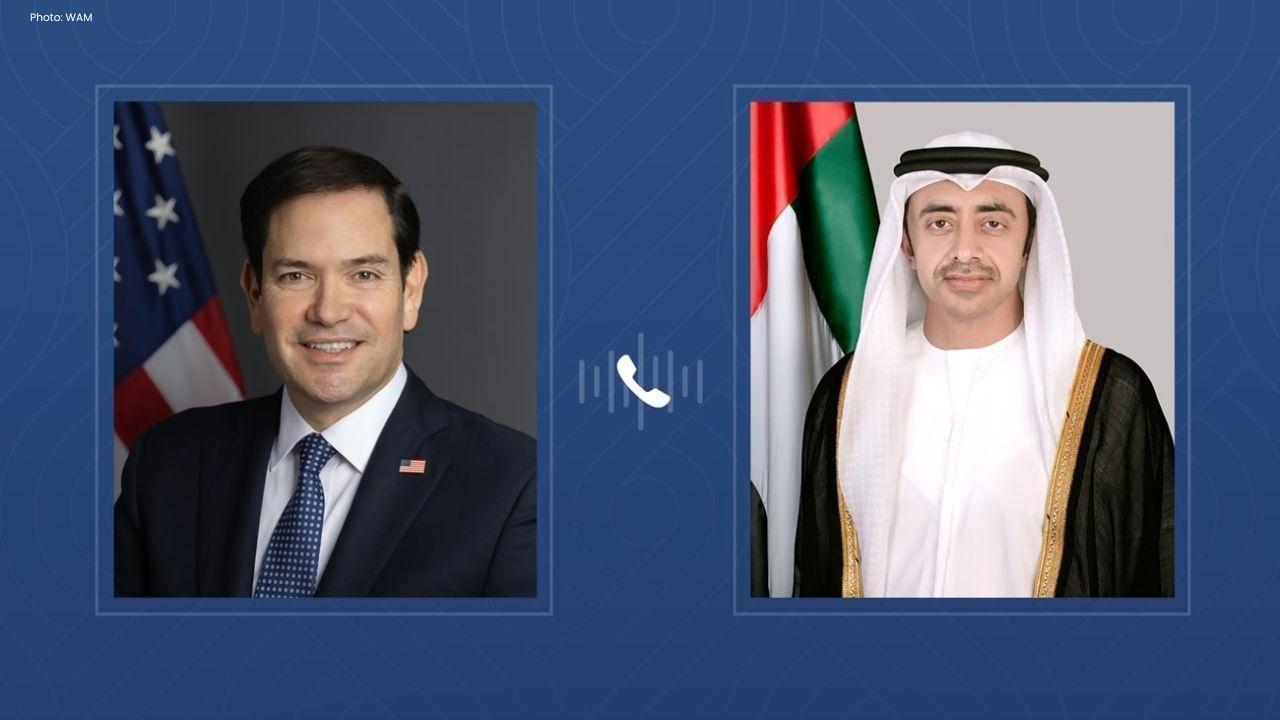
Post by : Anees Nasser
The Gaza conflict has entered another critical phase as international mediators push to secure a ceasefire agreement between Israel and Hamas. While previous truce efforts in the region have seen mixed results, the stakes this time are higher than ever. The humanitarian crisis is worsening, regional tensions are simmering, and global powers are increasingly involved in the negotiations. But what exactly is holding up the latest ceasefire deal, and what could this mean for the broader Middle East?
The Gaza Strip has long been a flashpoint for conflict, but the recent escalation marks one of the deadliest periods in years. What started as localized tensions quickly spiraled into large-scale military exchanges. Airstrikes, rocket attacks, and urban clashes have left thousands displaced and infrastructure devastated. Both sides claim their actions are defensive, but civilians continue to bear the brunt.
Despite numerous appeals from the international community, including the United Nations and regional bodies, a lasting ceasefire has remained elusive. Temporary pauses have been agreed upon in the past, but none have succeeded in delivering long-term peace. The latest round of negotiations aims to change that—but it’s proving to be a difficult task.
The humanitarian situation in Gaza is dire. Hospitals are overwhelmed, power supplies are intermittent, and basic necessities like clean water and food are scarce. For families trapped in the conflict zone, every passing hour without a ceasefire means increased suffering.
Beyond the immediate humanitarian crisis, there’s a geopolitical dimension. Prolonged conflict threatens regional stability, potentially drawing in neighboring countries and derailing diplomatic efforts elsewhere in the Middle East. Global economic concerns, particularly those related to energy security and trade routes, also make this ceasefire critical. Simply put, the world is watching closely, and the clock is ticking.
Ceasefire negotiations involve more than just Israel and Hamas. Several external actors are working behind the scenes to mediate a deal:
Egypt: Traditionally a major player in Gaza-related negotiations, Egypt has been facilitating talks between the two sides. Cairo’s proximity and historical ties give it significant leverage, but also expose it to security risks if the conflict worsens.
Qatar: Known for its financial influence and open channels with Hamas, Qatar is pushing for a resolution that includes humanitarian aid and reconstruction guarantees.
United States: Washington’s role remains pivotal. While the U.S. backs Israel’s security concerns, it also recognizes the need for a ceasefire to prevent further destabilization in the region.
United Nations: The UN is actively advocating for a pause in hostilities, emphasizing humanitarian access and civilian protection.
Each of these players brings different priorities to the table, which complicates efforts to reach a unified agreement.
Despite broad consensus on the need for a ceasefire, several contentious issues remain unresolved:
Prisoner Exchange Terms
Israel insists on the release of hostages held by Hamas, while Hamas demands the release of Palestinian prisoners in return. Negotiating the numbers, timelines, and identities involved in such exchanges is a delicate process.
Security Guarantees
Both sides seek assurances that the other will not resume hostilities immediately after a truce. Israel wants mechanisms to prevent future rocket attacks, while Hamas demands an end to targeted strikes.
Reconstruction and Aid Delivery
Gaza’s infrastructure is in ruins, and rebuilding requires significant financial resources. Questions about who will fund and oversee reconstruction efforts—while ensuring that materials do not end up in military use—remain unresolved.
Border Controls
Access to and from Gaza is a highly sensitive topic. Hamas wants restrictions eased to allow goods and people to move freely, while Israel cites security concerns.
These sticking points have kept negotiators in marathon sessions without a breakthrough, even as conditions on the ground deteriorate.
The ceasefire talks cannot be viewed in isolation. Regional politics play a huge role in shaping outcomes:
Normalization Trends: Several Arab countries have normalized relations with Israel in recent years. These new diplomatic ties could be leveraged to push for a ceasefire, but they also create friction among actors with competing interests.
Iran’s Influence: Iran’s support for Hamas remains a complicating factor. Tehran’s stance influences how hardline factions within Gaza approach negotiations, while Israel perceives this as part of a broader regional challenge.
Domestic Politics in Israel: Internal divisions within Israel’s government add another layer of complexity. Leaders face pressure from both hawkish factions demanding security guarantees and moderates pushing for de-escalation.
These factors mean that the Gaza ceasefire is as much about regional geopolitics as it is about local security concerns.
While diplomats debate terms, the humanitarian toll keeps rising. UN agencies warn of catastrophic consequences if aid does not reach civilians soon. Health facilities are running on backup generators, and food stocks are dangerously low. The psychological trauma, particularly among children, is severe and long-lasting.
International NGOs have been pressing for humanitarian corridors to deliver essential supplies, but these require security guarantees—another sticking point in the negotiations. Without immediate relief, the human cost could overshadow even the most optimistic ceasefire plans.
World powers have ramped up calls for an immediate ceasefire. The European Union has pledged additional humanitarian aid, while the United States is applying diplomatic pressure on both Israel and Hamas. Meanwhile, global markets are jittery. Prolonged conflict could impact energy prices and shipping routes, especially with the Red Sea already a zone of concern due to recent maritime incidents.
The growing international involvement underscores the global stakes of what might appear to be a localized conflict. For many nations, the Gaza ceasefire is not just a moral imperative—it’s an economic and security necessity.
Failure to reach a ceasefire could have severe consequences. For Gaza, it means prolonged suffering and further destruction. For Israel, it risks continued security threats and potential regional escalation. For the broader Middle East, a failed truce could destabilize fragile diplomatic progress and fuel extremist narratives.
In the worst-case scenario, the conflict could expand beyond Gaza, dragging neighboring countries into a cycle of violence that would take years to resolve. This is why mediators are treating the current talks with a sense of urgency and gravity.
Despite the challenges, there are reasons for cautious optimism. All parties recognize the unsustainable nature of continued fighting, and no major actor appears to be advocating for indefinite escalation. The coming days will be critical. If negotiators can bridge the gaps on prisoner exchanges, security assurances, and reconstruction plans, a deal could be within reach.
For now, the world waits. Every hour without a ceasefire means more casualties, more displacement, and more scars—both physical and psychological. The question is not whether a ceasefire is needed, but whether leaders have the political will to make it happen.
The Gaza ceasefire talks represent more than a bid to stop violence—they are a litmus test for regional diplomacy and global cooperation. As mediators work tirelessly behind closed doors, civilians continue to pay the price of delay. The coming days will determine whether this conflict takes a step toward resolution or spirals further out of control.
The views expressed in this article are for informational purposes only and should not be construed as an endorsement of any political position. Readers are encouraged to seek multiple perspectives when forming opinions on complex geopolitical issues.










Curry Powers Warriors to Nail-Biting 109-108 Victory Against Spurs
Stephen Curry's 49 points propel the Warriors to a dramatic 109-108 NBA Cup triumph over the Spurs,

India Advances to Semi-Finals After Thrashing USA in Women’s Blind T20 World Cup
India secured a dominant ten-wicket victory over the USA, advancing to the semi-finals in the Women’

South Africa's Early Advantage as India Struggles on Day Two
On Day Two, India reached 138-4 as South Africa took three early wickets, complicating matters with

Kenta Nishimoto Defeats Lakshya Sen in Japan Masters Semifinal
Lakshya Sen's journey in the Japan Masters ends after losing to Kenta Nishimoto 19-21, 21-14, 12-21

Kenta Nishimoto Defeats Lakshya Sen in Japan Masters Semifinals
Lakshya Sen's run at the Japan Masters concludes with a loss to Kenta Nishimoto in the semifinals, 1

Major IPL Trade: Jadeja Joins Royals as CSK Signs Samson
In a significant IPL trade, CSK has acquired Sanju Samson from Rajasthan Royals in exchange for Ravi